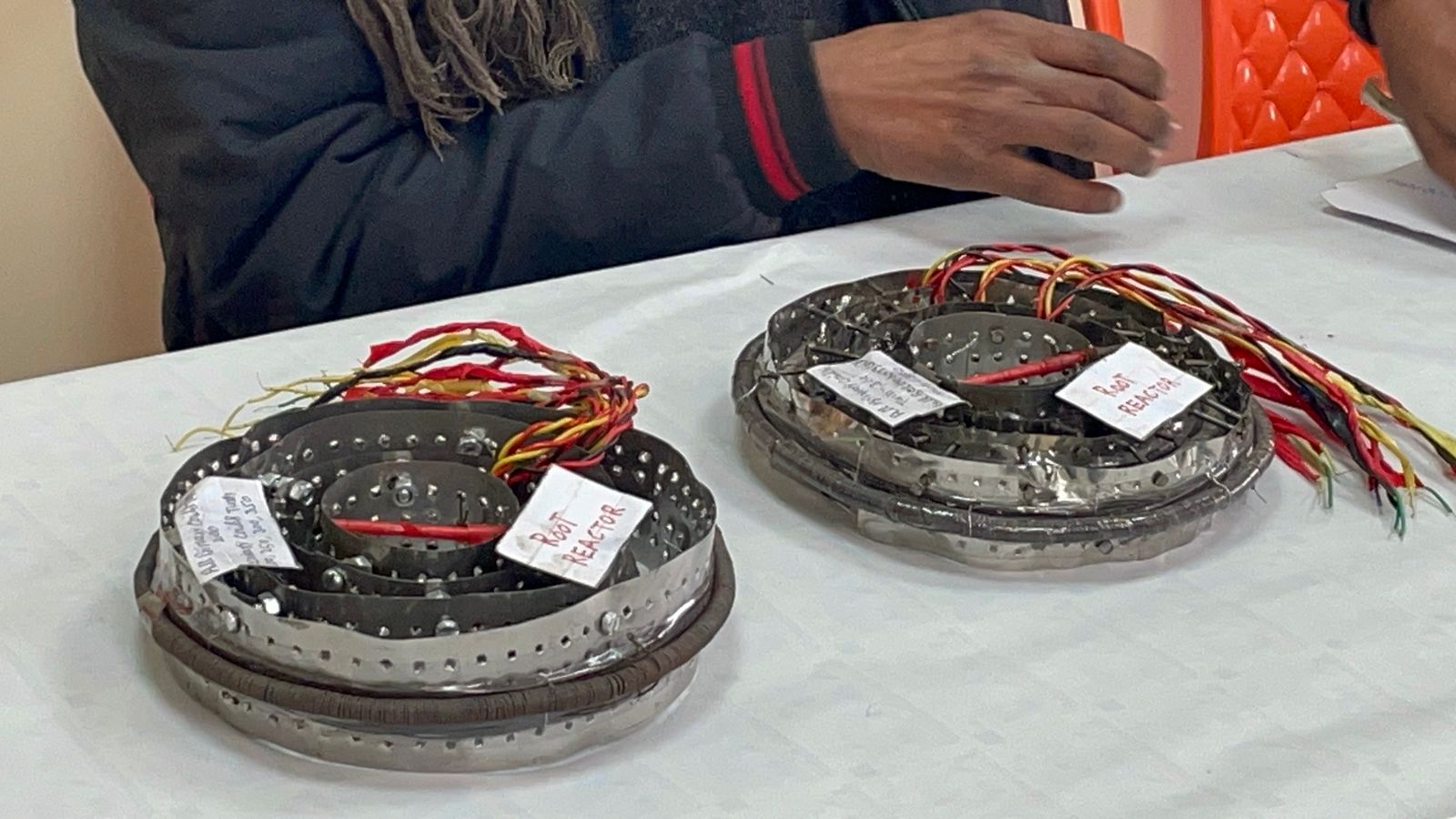Kanpur: In an apparently groundbreaking innovation, which could be a game changer for environmental conservation, a man in Uttar Pradesh has claimed to have produced electricity from tree roots.
Pramod Pandey, an ITI pass out from Basti in Uttar Pradesh, claims that farmers will be able to produce both fruits and electricity from trees. Pandey claims that the technology is being used in many countries including the Netherlands and can be replicated in India as well.
Inspired By Vedas And Upanishads: Pandey, who completed his ITI studies with BSc Maths, started working on repairing electrical equipment. He said that he read many Upanishads from Rigveda for this. Pandey said that he read the theory of money and debt in Shvetashvatara Upanishad, which made him think that electricity can be produced from trees.
Pandey said that the breakthrough came in 2011, when he placed electrodes near the roots of a peepal tree near his house with the experiment leading to the generation of one volt of direct current. After a few years of hard work, Pandey claimed to have made a model of a root reactor, which, he said, made it very easy to produce electricity after placing it under the trees.

Research Turned Into Startup: Pandey said that in 2016, he approached Narsee Monjee Institute of Management Studies Mumbai (Deemed University), where the experts considered his innovation very special and incubated it in the Atal Innovation Center in their institute. The startup was later named 'Banaye Energy Private Limited'.
How Is Electricity Generated From Tree Roots? Pandey claimed that he achieved Alternate Current (AC) up to 10 volts in Mumbai through the presentation of his root reactor model adding electricity up to 300 volts i.e. 30 watts from one volt current is achievable through his model. The ground testing of Pandey's model will be done by experts from Bundelkhand University next month.
Pandey said that his root reactor model works exactly like the transformers installed in the localities. “When we flow the current on the primary phase in the root reactor model through switching, the current we get on the secondary phase is in induced form which can be sent anywhere further,” he said.
“The same happens in a transformer, which gets the supply from the substation in the primary phase, which further reaches the secondary phase to reach the homes,” added Pandey.
Read more:



